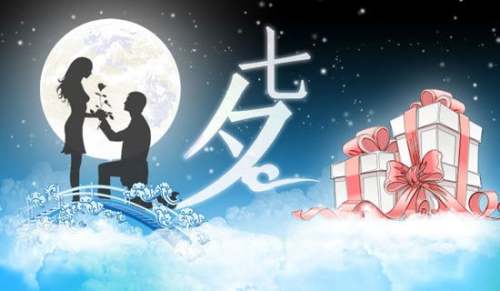ХcЦпЯІгаъP(guЈЁn)ЕФгЂеZ(yЈГ)зїЮФ
ЁЁЁЁУПФъоr(nЈЎng)vЦпдТГѕЦпп@вЛЬьЪЧжај(guЈЎ)ЕФїНy(tЈЏng)Й(jiЈІ)ШеЦпЯІЙ(jiЈІ)ЁЃЦпЯІЙ(jiЈІ)ЪМгкжај(guЈЎ)hГЏЁЃЯрїЃЌдкУПФъЕФп@(gЈЈ)вЙЭэЃЌЪЧЬьЩЯПХЎХcХЃРЩдкљoђЯрў(huЈЌ)ЁЃХcЦпЯІгаъP(guЈЁn)ЕФгЂеZ(yЈГ)зїЮФдѕУДЃПЯраХКмЖрШЫЖМЯыжЊЕРАЩЃПвдЯТЪЧаЁОщФњећРэЕФХcЦпЯІгаъP(guЈЁn)ЕФгЂеZ(yЈГ)зїЮФЯръP(guЈЁn)йYСЯЃЌgгщзxЃЁ

ЁЁЁЁХcЦпЯІгаъP(guЈЁn)ЕФгЂеZ(yЈГ)зїЮФ1
ЁЁЁЁЦпЯІЃЌЬсЦ№п@(gЈЈ)УћзжОЭў(huЈЌ)ЪЙШЫЯыЕНХЃРЩПХЎЬьКгЯрў(huЈЌ)ЕФЙЪЪТЁЃЖрУДУРКУЃЌЖрУД ТўЁЃ
ЁЁЁЁНёЬьЃЌЮвШЅНжЩЯЭцЃЌ](mЈІi)ЯыЕННжРяЕНЬDMСЫШЫЃЌмнvэ(lЈЂi)э(lЈЂi)ЭљЭљЃЌп^(guЈА)ёRТЗЖМКмРЇыyЁЃЗХблЭћШЅЃЌЕНЬЖМЪЧЪжРЪжЃЌМчВЂМчЕФЧщШЫЁЃХЎКЂКЕФЪжРяЖМХѕжјФаХѓгбЫЭЕФѕrЛЈКЭЧЩПЫСІЁЃЮвЯыЃЌНёЬьЪЧЫћзющ_аФЃЌзюавИЃЕФвЛЬьЃЌгШЦфІ(duЈЌ)гкХЎКЂзгэ(lЈЂi)жvЁЃ
ЁЁЁЁЮвКЭдкНжЩЯЕНЬЯЙЙфЁЃЮвЕквЛ(gЈЈ)э(lЈЂi)ЕНЕФЪЧаЌЕъЁЃпM(jЈЌn)ШЅБуПДввЛЮЛФаЕФе§ЯђвЛЮЛХЎЕФ.БэАзЃЌФЧХЎЕФпВЛКУвтЫМФиЃЁФЧФаЕФвЛжБдкзЗ(wЈЈn)дИВЛдИвтЃЌФЧХЎЕФпВЛИвеf(shuЈ)ЁЃВЛжЊЪЧеl(shuЈЊ)НаСЫвЛТЁАД№Њ(yЈЉng)ЫћЁБЃЌгкЪЧЫљгаШЫЖМИњжјвЛЦ№еf(shuЈ)ЃЌФЧХЎКЂВХКІапЕиЭЌвтСЫЁЃ
ЁЁЁЁЮвКЭйIЭъаЌГіэ(lЈЂi)ЃЌе§е?wЈД)жјФЧЪТКЃЌКіШЛЮвПДвдквЛ(gЈЈ)аЁЯязгРяЃЌвЛ(gЈЈ)ФаЕФФБГКѓФУГіСЫвЛЪјѕrЛЈЃЌЫЭНoвЛ(gЈЈ)ХЎКЂКЃЌШЛКѓдй?gЈАu)ФПкДќРяФУГівЛ(gЈЈ)аЁКазгЃЌДђщ_вЛПДЃЌЪЧвЛюwЪЏу@НфЁЃФЧФаЕФФУжјНфжИЙђЯТэ(lЈЂi)ЃЌПДФЧі(chЈЃng)УцПЯЖЈдкЧѓЛщЁЃФЧХЎКЂККмПьОЭД№Њ(yЈЉng)СЫЁЃзюКѓЫћэБЇдквЛЦ№НгЮЧСЫЁЃ
ЁЁЁЁЁЁ
ЁЁЁЁ ТўЦпЯІЃЌЮвл(ЈЄi)ФуЃЁ
ЁЁЁЁTanabata, to mention the name will make people think of the story of the Cowboy Weaver Tianyuan meet. How wonderful it is.
ЁЁЁЁToday, I went to the streets to play, did not expect the streets full of people everywhere, the vehicle coming and going, crossing the road are very difficult. Looking around, everywhere are hand in hand, shoulder to friends. Girl's hands are holding a boyfriend to send flowers and chocolate. I think today is their most happy and happiest day, especially for girls.
ЁЁЁЁMy mother and I are shopping around the street. We first came to the shoe store. Just go in and see a man is a female confession, that woman is also embarrassed it! That man has been in the chase is willing to, that woman still dare not say. I do not know who called out "promised him", so everyone followed to say that the girl was shyly agreed.
ЁЁЁЁI and my mother bought the shoes out, is talking about just that thing, suddenly I saw in a small alley, a man from the back out of a bouquet of flowers, give a girl, and then out from his pocket A small box, open a look, is a gem diamond ring. The man holding the ring kneel down to see that scene is sure to marry him. The girl soon agreed. Finally they hugged together.
ЁЁЁЁ...
ЁЁЁЁReally Tanabata, I love you!
ЁЁЁЁХcЦпЯІгаъP(guЈЁn)ЕФгЂеZ(yЈГ)зїЮФ2
ЁЁЁЁЁАЦпЯІНёЯќПДБЬЯіЃЌ ПХЃПХЎЖЩКгђЁЁЁБ
ЁЁЁЁНёЬьЪЧЦпЯІЙ(jiЈІ)ЃЌЪЧХЃРЩПХЎвЛФъвЛЖШЯрОлЕФШезгЁЃИїЕиЦпЯІЙ(jiЈІ)ЕФС(xЈЊ)ЫзВЛБMЯрЭЌЃКгаЕФЕиЗНГдЦђЧЩяЁЂІ(duЈЌ)дТДЉсЃЛгаЕФЕиЗНЕФЩйХЎЭЕЭЕЖудкФЯЙЯХяЯТЃЌТ ХЃРЩПХЎЯрў(huЈЌ)r(shЈЊ)ЕФЧФЧФдЃЛгаЕФ.ЕиЗНЕФЙУФяЁААнЯЩКЬЁБЁЂЁААнЩёВЫЁБЁЂЁАгЯЩЁБЁЂЁАВЗЧЩЁБЁЂЁАйЧЩЁБЁЃ
ЁЁЁЁдкЮвЕФМврl(xiЈЁng)ЃЌїеf(shuЈ)ЦпдТЦпШедчГПЃЌЯЩХЎвЊЯТЗВЯДдшЃЌКШЦфЯДдшЫЎПЩвдБмаАжЮВЁбглЁЃДЫЫЎУћНаЁАыpЦпЫЎЁБЁЃШЫ?cЈЈ)кп@ЬьыuјQr(shЈЊ)ЃЌ (zhЈЅng)ЯШПжКѓЕиШЅКгп ШЁЫЎЃЌШЁЛиКѓгУаТЎYЪЂЦ№э(lЈЂi)ЃЌД§ШеКѓЪЙгУЁЃ
ЁЁЁЁАјЭэЃЌЮвШЅгЮгОЃЌТ eШЫеf(shuЈ)НёЬьдчЩЯКЭжаЮчКмЖрШЫЕНКгРяШЅгЮгОЃЌХнХнБмаАжЮВЁбглЕФЁАыpЦпЫЎЁБЁЃеf(shuЈ)э(lЈЂi)вВЧЩЃЌЮвЯТЫЎВЛОУЃЌЯТЦ№СЫвЛў(huЈЌ)КаЧаЧќc(diЈЃn)ќc(diЈЃn)ЕФаЁгъЃЌп@ОЭЪЧХЃРЩПХЎЕФЁАЯрЫМIЁБАЩЃП
ЁЁЁЁЭэЩЯЃЌЮвэ(lЈЂi)ЕНЧэЃЌбіЭћЬьПеЁЃвЛlуyКгMи?zЈЁi)ЯББЃЌКгЕФЩАЖИїгавЛюwщWССЕФаЧаЧЃЌИєКгЯрЭћЃЌпbпbЯрІ(duЈЌ)ЃЌФЧОЭЪЧ ПХЃаЧКЭПХЎаЧАЩЃП
ЁЁЁЁЦпЯІЙ(jiЈІ)ецЪЧжај(guЈЎ)їНy(tЈЏng)Й(jiЈІ)ШежазюОпРЫТўЩЋВЪЕФвЛ(gЈЈ)Й(jiЈІ)ШеАЁЃЁ
ЁЁЁЁ"Tanabata tonight to see Bi Xiao, pull the cattle weaver crossing the river bridge ... ..."
ЁЁЁЁToday is Tanabata Festival, is Cowboy Weaver once a year together. Around the Tanabata Festival customs are not the same: some places begging Qiao rice, on the needle; some local girls secretly hiding in the pumpkin shed, listen to the weaver when the whispers meet; some local girl "worship cents Wo" , "Worship gods", "welcome cents", "Bu Qiao", "й clever".
ЁЁЁЁIn my hometown, the legend of July 7 morning, the fairy to descend to take a bath, drink its bath water can cure evil life. This water is called "double seven water". People in this day when the cock, scrambling to the river to take water, get back with a new urn Sheng, to be used later.
ЁЁЁЁIn the evening, I went swimming, listening to others that morning and noon a lot of people go to the river to swim, bubble evil cure life "double seven water." It is also clever, we soon after the water, starting a little bit of stars for a little rain, this is the Cowherd and Weaver's "Acacia tears" right?
ЁЁЁЁNight, we came to the roof, looking up at the sky. A galaxy running across the north and south, the banks of the two sides have a shining star, across the river, distant relative, that is, Altair and Vega?
ЁЁЁЁTanabata Festival is the most traditional Chinese festivals in a romantic holiday!
ЁОХcЦпЯІЕФгЂеZ(yЈГ)зїЮФЁПЯръP(guЈЁn)ЮФеТЃК
ЦпЯІЕФгЂеZ(yЈГ)зїЮФ08-16
ЦпЯІгЂеZ(yЈГ)зїЮФ08-16
гаъP(guЈЁn)ЦпЯІгЂеZ(yЈГ)зїЮФ08-28
ЦпЯІЛюг(dЈАng)гЂеZ(yЈГ)зїЮФ08-14